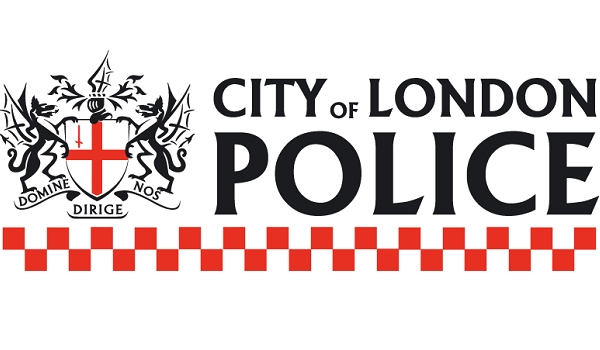‘Increasing trend’ for local resolution as police forces implement new complaints system
As police forces in England and Wales continue to implement “significant reforms” to the complaints system, the Independent Office for Police Conduct (IOPC) has today (November 26) published the final statistics for complaints recorded under the old system.
The police complaints system changed on February 1, 2020, as a result of regulations introduced by the Government under the Policing and Crime Act 2017.
The changes are intended to simplify the complaints system, making it easier to navigate and putting a greater emphasis on handling complaints in a reasonable and proportionate manner.
IOPC Director-General Michael Lockwood said its latest report suggests police forces were already taking “a more proportionate approach to handling complaints”, with almost half of all allegations handled through local resolution.
He said: “An effective complaints system is vital for public confidence in policing and that is why we have welcomed the significant reforms introduced earlier this year.
“We welcome the broader definition of a complaint to “any expression of dissatisfaction with a police force” and agree that all complaints should receive a reasonable and proportionate response. We also welcome the introduction of a simplified process when complainants are not satisfied with that response.”
Mr Lockwood added: “We know many police forces began to adopt the spirit of the reforms when the legislation was delayed last year. This report shows an increased use of local resolution, which could suggest police forces are already taking a more proportionate approach to handling complaints.
“We will continue to work closely with the police and other policing bodies to help them embed the new reforms and deliver an improved complaints system for both complainants and the police.’’
The IOPC said the latest last statistics are the last before the police complaints and disciplinary systems were “significantly reformed” with effect from February 1. Complaints recorded after this date are not included in this report and will be published alongside the 2020/21 statistics.
“The changes to the complaints system are significant and we know that some forces began to adopt the spirit of the reforms throughout the year,” said the IOPC. “In this context and without a full year’s data it would not be meaningful to compare these statistics to previous years, establish trends and draw conclusions about any changes.”
Between April 1, 2019, and January 31, 2020, police forces recorded 28,223 complaints containing 54,015 allegations; 86 per cent were recorded within the target of ten working days.
Allegations of ‘other neglect or failure in duty’ accounted for 41 per cent of all allegations recorded, in line with the trend in previous years. The IOPC says this category relates to how officers responded to or investigated incidents and can cover a wide range of issues.
It added that almost half of all allegations were handled through local resolution (48 per cent), with more than a third subject to a local investigation (39 per cent).
“This reflects the trend seen last year to use local resolution for an increasing number of complaints. On average, local resolutions took significantly less time to conclude than local investigations (73 and 151 working days respectively),” said the IOPC.
Chief officers received 3,512 appeals from complainants unhappy with the way their case had been handled and upheld 16 per cent of those following local resolution and 15 per cent following local investigations.
The IOPC dealt with 2,858 appeals and upheld 49 per cent of those following local resolution and 34 per cent following investigation by the police force.
In addition, the IOPC dealt with 1,305 appeals relating to the recording of complaints and upheld 40 per cent of those.
The 2020 regulations have made significant changes to the police complaints system. These include that if the complaint can be resolved quickly and the complainant is satisfied, then it will not be recorded under the Police Reform Act 2002 (although details about it will be logged). If the complaint cannot be resolved quickly then the police force must record it and handle it under Schedule 3 to the Police Reform Act 2002. This may or may not involve an investigation.
Police forces deal with most complaints themselves, with the IOPC handling only the most serious and sensitive cases, such as when someone dies or is seriously injured during contact with the police, cases of serious corruption, or allegations that an officer seriously assaulted someone or committed a serious sexual offence.
The Home Office worked closely with the National Police Chiefs’ Council (NPCC), the IOPC, the Association of Police and Crime Commissioners and staff associations to develop the comprehensive package of improvements.
These include: simplifying the complaints system; an enhanced role for police and crime commissioners to strengthen independence; a focus on improving individual learning and behaviours in response to lower-level conduct matters, based on a new Reflective Practice Review Process; and improving the efficiency and transparency of misconduct investigations and appeals.
NPCC lead for complaints and misconduct, Chief Constable Craig Guildford, says these address the valid concerns over timeliness, accountability and proportionality and puts the focus on learning, reflection and fairness.
Policing and Crime Minister Kit Malthouse said it was important to have a system that can “quickly establish what has gone wrong, hold officers to account where necessary and ensure lessons are learned”.
Announcing the reforms earlier this year, he said the changes will deliver this and “ensure the public can maintain confidence in the integrity of our world-class police”.
Mr Malthouse added: “The reforms will also deliver a more efficient system for dealing with police misconduct, making the investigation processes simpler and therefore quicker, including a requirement to provide an explanation where investigations take longer than 12 months.
“Importantly, the reforms aim to make the discipline system more proportionate and encourage a much greater emphasis on learning from mistakes.”







